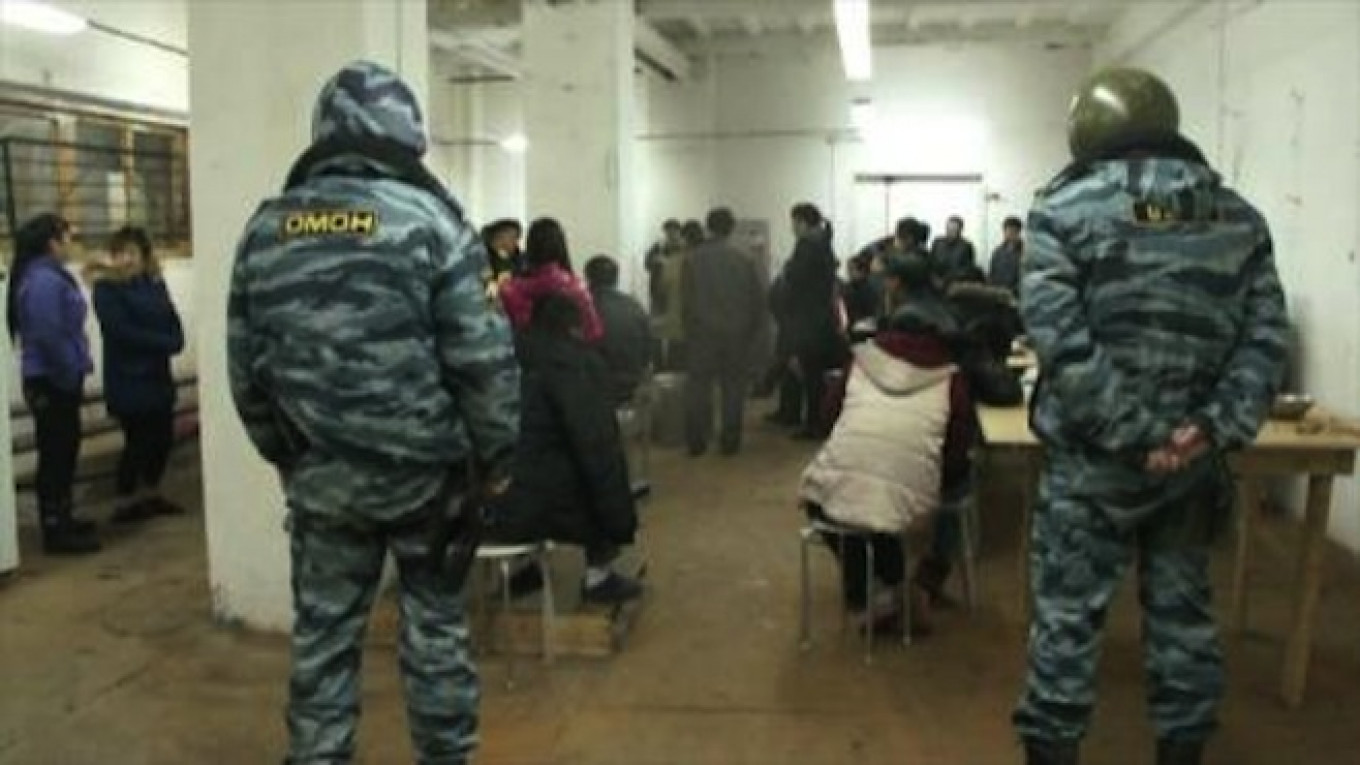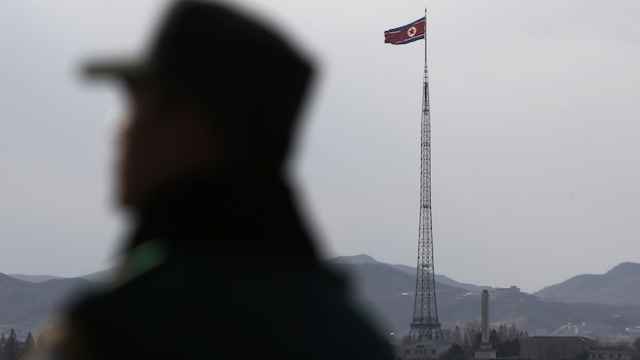Security officers have detained dozens of illegal workers from China working at a sewing shop in the Russian Ural Mountains, that some reports have linked to the local leader of the ruling United Russia party.
Police and officers from the federal security and migration services rounded up 46 Chinese citizens laboring at an "underground workshop" in Nizhny Tagil, an industrial city just east of the Urals, where they had been producing counterfeit brand-name sneakers, the regional branch of the Interior Ministry said Tuesday in a statement.
The migrants lived on the factory's premises, cooked their meals on electric stoves installed in a men's locker room and slept in a "so-called dormitory" with four to eight people to a room, the statement said.
"In all inhabited and support areas, disorder and unhygienic conditions were rife," the statement said.
Photos released by the Interior Ministry and published by the regional center of Yekaterinburg on its 66.ru news portal showed narrow bunk beds lined up one against the other, communal sinks against a wall with crumbling plaster, and a plywood-topped dining table littered with bread crumbs and a few metal bowls with leftovers.
The workshop was located on the premises of a local bread factory, TagilKhleb, headed by the leader of the ruling United Russia faction in the city legislature, Slanislav Boiko, local Mezhdu Strok (Between the Lines) news portal reported.
Boiko declined to confirm or deny his connection with the alleged sweatshop, responding to a reporter's question with a "No comment," Mezhdu Strok reported.
The Interior Ministry said in its statement that police have identified the individuals who employed the illegal workers, but did not provide any names.
The suspects will be summoned for questioning about the "activities of the illegal enterprise," the statement said.
Police have confiscated the production equipment, and boxes of sneakers produced at the factory, which were carrying the "logos of well-known international brands," the statement said.
The detained workers were being held "in their underground workshop under observation," Mezhdu Strok reported, citing the regional branch chief of the Federal Migration Service.
They may face deportation and be banned from re-entering Russian in the future, the official was quoted as saying.
Contact the author at newsreporter@imedia.ru
A Message from The Moscow Times:
Dear readers,
We are facing unprecedented challenges. Russia's Prosecutor General's Office has designated The Moscow Times as an "undesirable" organization, criminalizing our work and putting our staff at risk of prosecution. This follows our earlier unjust labeling as a "foreign agent."
These actions are direct attempts to silence independent journalism in Russia. The authorities claim our work "discredits the decisions of the Russian leadership." We see things differently: we strive to provide accurate, unbiased reporting on Russia.
We, the journalists of The Moscow Times, refuse to be silenced. But to continue our work, we need your help.
Your support, no matter how small, makes a world of difference. If you can, please support us monthly starting from just $2. It's quick to set up, and every contribution makes a significant impact.
By supporting The Moscow Times, you're defending open, independent journalism in the face of repression. Thank you for standing with us.
Remind me later.






